Related Research Articles

The history of the Czech lands – an area roughly corresponding to the present-day Czech Republic – starts approximately 800,000 years BCE. A simple chopper from that age was discovered at the Red Hill archeological site in Brno. Many different primitive cultures left their traces throughout the Stone Age, which lasted approximately until 2000 BCE. The most widely known culture present in the Czech lands during the pre-historical era is the Únětice Culture, leaving traces for about five centuries from the end of the Stone Age to the start of the Bronze Age. Celts – who came during the 5th century BCE – are the first people known by name. One of the Celtic tribes were the Boii (plural), who gave the Czech lands their first name Boiohaemum – Latin for the Land of Boii. Before the beginning of the Common Era the Celts were mostly pushed out by Germanic tribes. The most notable of those tribes were the Marcomanni and traces of their wars with the Roman Empire were left in south Moravia.
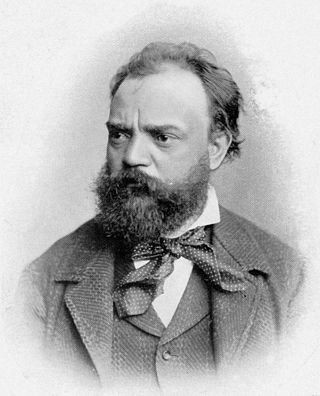
Antonín Leopold Dvořák was a Czech composer. Dvořák frequently employed rhythms and other aspects of the folk music of Moravia and his native Bohemia, following the Romantic-era nationalist example of his predecessor Bedřich Smetana. Dvořák's style has been described as "the fullest recreation of a national idiom with that of the symphonic tradition, absorbing folk influences and finding effective ways of using them."
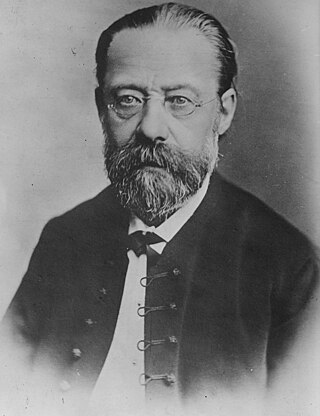
Bedřich Smetana was a Czech composer who pioneered the development of a musical style that became closely identified with his people's aspirations to a cultural and political "revival". He has been regarded in his homeland as the father of Czech music. Internationally he is best known for his 1866 opera The Bartered Bride and for the symphonic cycle Má vlast, which portrays the history, legends and landscape of the composer's native Bohemia. It contains the famous symphonic poem "Vltava", also popularly known by its German name "Die Moldau".

Ludevít Štúr, also known as Ľudovít Velislav Štúr, was a Slovak revolutionary, politician, and writer. As a leader of the Slovak national revival in the 19th century, and the author of the Slovak language standard, he is lauded as one of the most important figures in Slovak history.

František Palacký was a Czech historian and politician, the most influential person of the Czech National Revival, called "Father of the Nation".

Otakar Ševčík was a Czech violinist and influential teacher. He was known as a soloist and an ensemble player, including his occasional performances with Eugène Ysaÿe.

Jacob Batsheba Bassevi von Treuenberg was a Bohemian Court Jew and financier. Bassevi, sometimes also written Baschevi, was a son of Avraham Basch who originated from Italy. Early in his life he specialized in trading with silver which was the main component of the coins and currencies at his time. He ultimately became very wealthy, and stood in high favor with the emperors Rudolph II, Matthias, and Ferdinand II, to whom he frequently rendered financial assistance, particularly to Ferdinand, who needed large sums of money for the prosecution of the Thirty Years' War (1618–1648).

Moritz Hartmann was a Bohemian-Austrian poet, politician and author.
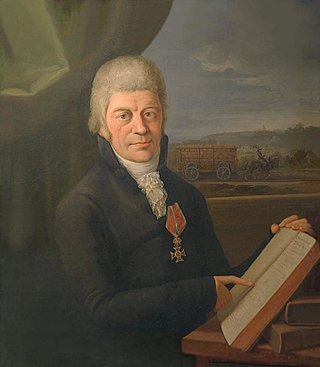
Franz Josef Gerstner was a German-Bohemian physicist, astronomer and engineer.
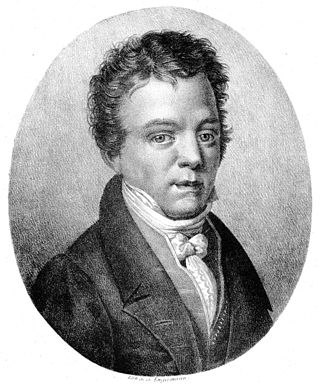
Jan Václav Hugo Voříšek was a Czech composer, pianist, and organist.

Rabbi Gershon Shaul Yom-Tov Lipmann ben Nathan ha-Levi Heller, was a Bohemian rabbi and Talmudist, best known for writing a commentary on the Mishnah called the Tosefet Yom-Tov (1614–1617). Heller was one of the major Talmudic scholars in Prague and in Poland during the "Golden Age" before 1648.
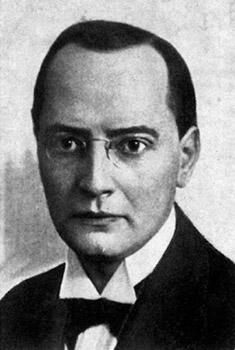
Walter Serner was a German-language writer and essayist. His manifesto Letzte Lockerung was an important text of Dadaism.

Viktor Dyk was a nationalist Czech poet, prose writer, playwright, politician and political writer. He was sent to jail during the First World War for opposing the Austro-Hungarian empire. He was one of the signatories of the Manifesto of Czech writers. Dyk co-founded a political party and entered politics. He died at age 53, leaving his many poems, plays and writings.

Antonín Sova was a Czech poet and the director of Prague Municipal Library.

Franz Xaver Niemetschek was a Czech philosopher, teacher and music critic. He wrote the first full-length biography of Wolfgang Amadeus Mozart which has remained an important source of information about the composer.
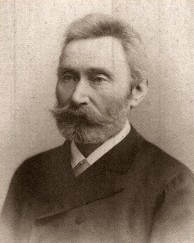
Antonín Bennewitz was a Bohemian violinist, conductor, and teacher. He was in a line of violinists that extended back to Giovanni Battista Viotti, and forward to Jan Kubelík and Wolfgang Schneiderhan.

Gustav Walter was a German operatic lyric tenor who sang leading roles for more than 30 years at the Vienna Staatsoper in Austria. He was a highly regarded interpreter of the vocal music of Wolfgang Amadeus Mozart and the lighter tenor roles composed by Richard Wagner. Walther also created the role of Assad in the world premiere of Karl Goldmark's Die Königin von Saba and performed in some Italian and French operas.

Josip Filipović, Freiherr (Baron) von Philippsberg, also Josef von Philippovich or Joseph Philippovich, was an Austrian-Hungarian general (Feldzeugmeister).

Alfred Meissner was an Austrian poet.

Václav Levý was a Czech sculptor. He was considered to be one of the pioneers of the modern style in Bohemia.
References
 This article incorporates text from a publication now in the public domain : Singer, Isidore; et al., eds. (1901–1906). "Heller, Seligmann". The Jewish Encyclopedia . New York: Funk & Wagnalls.
This article incorporates text from a publication now in the public domain : Singer, Isidore; et al., eds. (1901–1906). "Heller, Seligmann". The Jewish Encyclopedia . New York: Funk & Wagnalls.